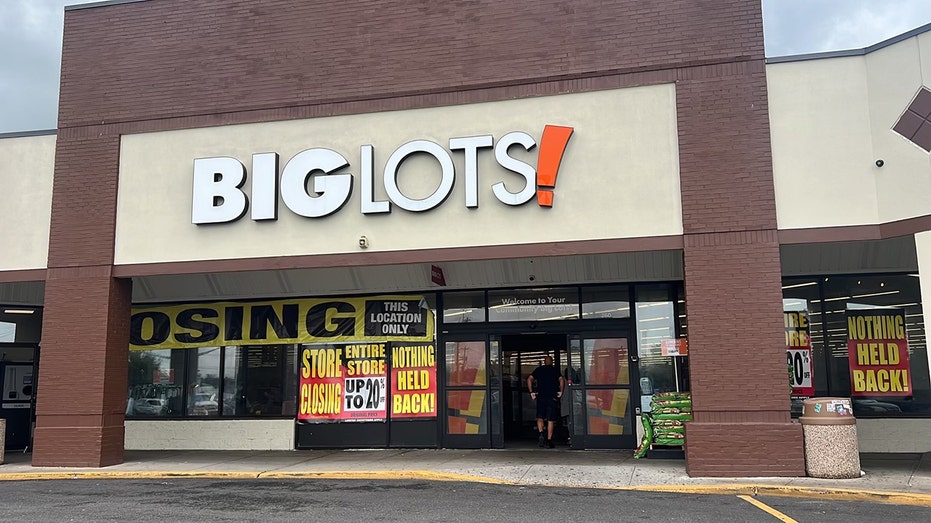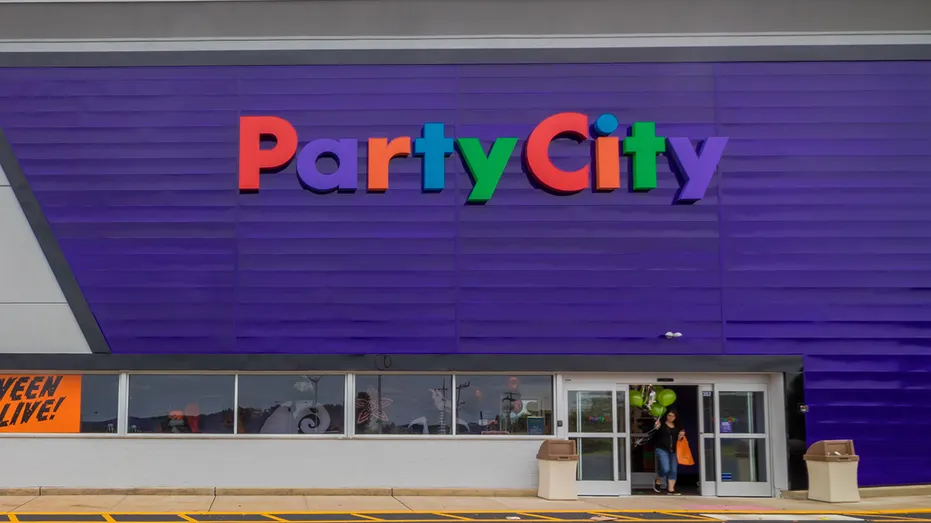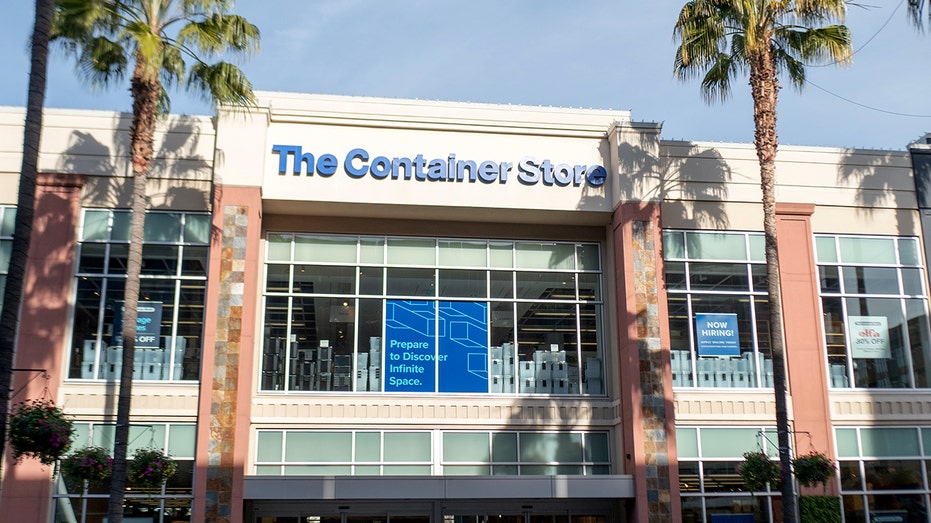Debtwire global head of legal Sarah Foss talks to Fox News Digital about the companies that thrived and those that struggled to survive in 2024.
The 2024 markets saw ebbs and flows, big wins and losses, which translated directly to some of America’s favorite retail, restaurant and travel brands.
Debtwire, the data-crunching firm that tracks all things around company stress and bankruptcy, has revealed the names that came out on top this year – and who fell to the bottom.
Winners
JOANN Fabric and Crafts
Well-known craft store retailer JOANN declared Chapter 11 bankruptcy in March, and managed to make it through without closing a single store and cutting in half its $1 billion debt.
“This is a company that saw a big increase in its revenues as a result of the pandemic. More people were at home doing crafts, buying all the products that JOANN sells. But those revenues [have] since normalized to sort of the normal post-pandemic level, whereas we’ve seen shopping habits change, less people in stores, expenses increasing,” Debtwire head of legal Sarah Foss told Fox News Digital.
COMPANIES ARE GOING BANKRUPCT AT THE FASTEST PACE SINCE 2020: A ‘HISTORIC SURGE’
“With JOANN, really just eliminating the massive amount of its debt burden was key for the company, and I think it’s really a restructuring like this that does give some kind of hope to the retail sector.”
Debtwire’s top business winners of 2024 were JOANN Fabrics and Rite Aid, while the biggest losers were 99 Cents Only Stores and Big Lots. (Getty Images)
Rite Aid
Pharmaceutical retail chain Rite Aid is also considered a 2024 success in Debtwire’s eyes, maintaining customer loyalty despite its “contentious” Chapter 11 bankruptcy case.
“Right after they filed for bankruptcy, there was talk of them shutting their doors entirely, liquidating. But the company was able to move forward with a plan,” Foss said.
“Rite Aid needed people that filled their prescriptions there to do so during the bankruptcy, post-bankruptcy, and they managed to get through bankruptcy without losing a single retail customer… which is very important to a Rite Aid, a Walgreens or a CVS, when people could get their prescriptions filled at the other pharmacy down the road or even online.”
Walmart
Fitz-Gerald Group Chief Investment Officer Keith Fitz-Gerald argues it’s time for investors to play offense in the markets on ‘Varney & Co.’
Turning to companies that have not faced bankruptcy worries this year, Walmart finds itself at the top. In its latest Q3 earnings report, America’s largest retailer raised its outlook for the year after benefiting from increased spending on nonessential items and an uptick in pick-up and delivery orders.
“With Walmart, it’s found a way to appeal to cash-strapped consumers who are on a tight budget in a way that other retailers just have not,” Foss noted.
Amazon
Amazon has also emerged as a top competitor, wiping out traditional brick and mortar shopping methods. Earlier this year, Amazon shares hit a record and its market cap topped $2 billion.
“We’re consistently hearing with brick and mortar retailers that have filed for bankruptcy that customers [are] online shopping from Amazon. Retail chains just have a very, very hard time competing with them.”
Losers
99 Cents Only Stores
KB Advisory founder and President Kristin Bentz analyzes the retail space as prices rise and employment movers lower on ‘Making Money.’
The biggest loser of 2024, according to Debtwire, is 99 Cents Only Stores, which filed for bankruptcy in April to wind down operations, close doors for good and sell its assets to fellow discount retailers.
“If consumers are feeling sticker shock, why aren’t these companies more successful?” Foss posited. “These are companies, a lot of them with a massive amount of debt. 99 Cents Only Stores reported that it had $1 to $10 billion of liabilities when it filed for bankruptcy… we’re just seeing consumers changing how and where they are spending, you know, what may be the small amount of discretionary spending that they do have.”
This loss also translates to the dollar-store discount names: “You had some of them scooping up 99 Cents Only Stores’ assets, some of their stores which are under a new umbrella… It’s a tough business model for all of us to understand. And I think we’ll continue to face pressure in the new year.”
Big Lots

Carle Place, N.Y.: The Big Lots store in Carle Place, New York on July 23, 2024. (Getty Images)
In recent days, Big Lots started holding its “going out of business” sales. Big Lots launched Chapter 11 bankruptcy proceedings in early September to help facilitate the sale of “substantially all” of its assets to its “stalking horse bidder” Nexus Capital Management.
Foss pointed out that Big Lots had a similar amount of debt liabilities to the 99 Cents Only Stores.
Party City

Party City declared its Chapter 11 bankruptcy just days before the Christmas 2024 holiday. (iStock)
Though Foss initially thought Party City may make it to see 2025, the retailer announced just before Christmas that it would be closing all stores after being in business for 40 years.
Party City corporate employees lost their jobs after Friday, according to CNN. The company is reportedly eyeing widespread store closures at the beginning of February.
“With a Party City, it’s particularly interesting in that they just exited bankruptcy last year. This would be their second Chapter 11, what we like to call Chapter 22, in less than two years.”
GET FOX BUSINESS ON THE GO BY CLICKING HERE
The Container Store

Facade of Container Store retail store on Santana Row in the Silicon Valley, San Jose, California, January 3, 2020. (Getty Images)
On Monday morning, The Container Store filed for Chapter 11 bankruptcy shortly after the New York Stock Exchange decided to delist the retailer. Foss claimed they faced liquidity and profitability problems.
“This is really a key time for retailers that are having issues. The holiday shopping season is very important for retail chains and can be a ‘make it or break it’ time for a company that’s in trouble,” she said.
“There was some talk, I think, with The Container Store about potentially having an equity infusion from Beyond Inc., which is the company that was formerly Overstock… Consolidation in the competition space I think could potentially be good. You know, the problem is that there’s just not a lot of third-party money or retailers that are wanting to buy these troubled chains.”
FOX Business’ Eric Revell, Greg Wehner and Aislinn Murphy contributed to this report.

